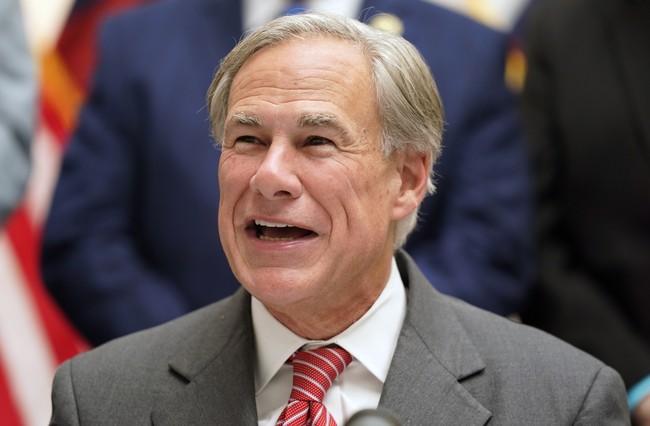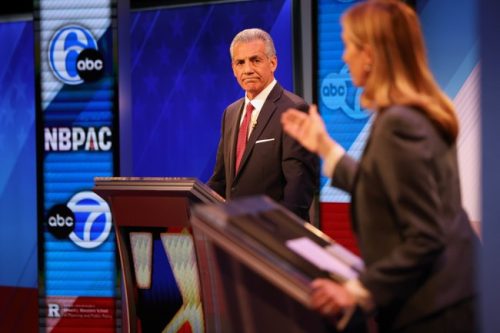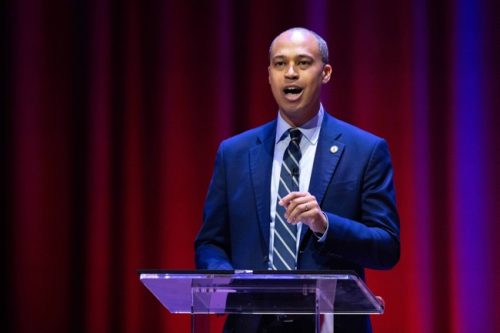Texas Governor Greg Abbott stirred headlines by threatening to slap a 100 percent tariff on New Yorkers who move to Texas after Election Day, framing it as a political warning to cities electing far-left leaders. The move exposed tensions between state sovereignty, federal authority over tariffs, and a larger Republican argument that liberal city policies drive civic decline and migration problems.
Governor Abbott took to X to lay out his stance in blunt terms. He wrote, “After the polls close tomorrow night, I will impose a 100% tariff on anyone moving to Texas from NYC,” making the point as a hard-edged political signal aimed at discouraging migration tied to local election outcomes. That line grabbed instant attention because a state cannot legally levy tariffs — that’s a federal power — yet the threat served as rhetoric to spotlight policy differences between Texas and New York.
From a conservative perspective, Abbott’s message is straightforward: voters in progressive cities should face the political consequences of the leaders they elect. If a city chooses radical or socialist leadership and then residents relocate, Republican leaders insist those cities should be accountable for the fallout rather than shifting costs to other states. This argument plays to small-government and fiscal-responsibility instincts that prioritize protecting local taxpayers from paying for failures in another jurisdiction.
After the polls close tomorrow night, I will impose a 100% tariff on anyone moving to Texas from NYC.
— Greg Abbott (@GregAbbott_TX) November 3, 2025
Federal law does reserve trade and tariff powers to Congress and the president, which makes Abbott’s threat symbolic rather than practical. Conservatives can still support the message without endorsing an unconstitutional tool, treating the tweet as a political pressure tactic rather than a binding policy. The debate it sparks about migration, taxation, and responsibility is useful for highlighting the differences between governance philosophies.
The backdrop for Abbott’s post was a bitter New York mayoral contest where voters were confronting candidates on public safety, economic stability, and culture. Some Republicans argued that nominating or electing far-left officials threatens the city’s recovery and can prompt people to leave, creating spillover effects for other states. Abbott framed his warning as a way to make those costs visible, and to force a choice: elect leadership that stabilizes a city, or accept the consequences.
National figures also weighed in, complicating the local drama. On Monday, former President Trump threw his support behind Andrew Cuomo in the race, framing the alternative as worse. Trump wrote on Truth Social:
If Communist Candidate Zohran Mamdani wins the Election for Mayor of New York City, it is highly unlikely that I will be contributing Federal Funds, other than the very minimum as required, to my beloved first home, because of the fact that, as a Communist, this once great City has ZERO chance of success, or even survival! It can only get worse with a Communist at the helm, and I don’t want to send, as President, good money after bad. It is my obligation to run the Nation, and it is my strong conviction that New York City will be a Complete and Total Economic and Social Disaster should Mamdani win. His principles have been tested for over a thousand years, and never once have they been successful. I would much rather see a Democrat, who has had a Record of Success, WIN, than a Communist with no experience and a Record of COMPLETE AND TOTAL FAILURE. He was nothing as an Assemblyman, ranked at the bottom of the class and, as Mayor of potentially, again, the Greatest City in the World, HE HAS NO CHANCE to bring it back to its former Glory! We must also remember this — A vote for Curtis Sliwa (who looks much better without the beret!) is a vote for Mamdani. Whether you personally like Andrew Cuomo or not, you really have no choice. You must vote for him, and hope he does a fantastic job. He is capable of it, Mamdani is not!
That endorsement changed the calculus for some voters by suggesting a vote for one candidate could indirectly help another. Republicans used both Abbott’s tweet and the national commentary to push a narrative about practical governance versus ideology. The argument is that stable leadership and fiscal discipline, not radical experiments, produce safe streets and functioning public services that retain residents and attract newcomers.
Whatever the legal limits, Abbott’s post accomplished a political goal: it sharpened the contrast between Texas-style conservatism and New York-style progressivism. For Republicans, that contrast reinforces long-held themes about responsibility, accountability, and the proper role of government in protecting taxpayers and public order. The fallout will play out at the ballot box and in the political conversation about where Americans want to live and under what rules.






